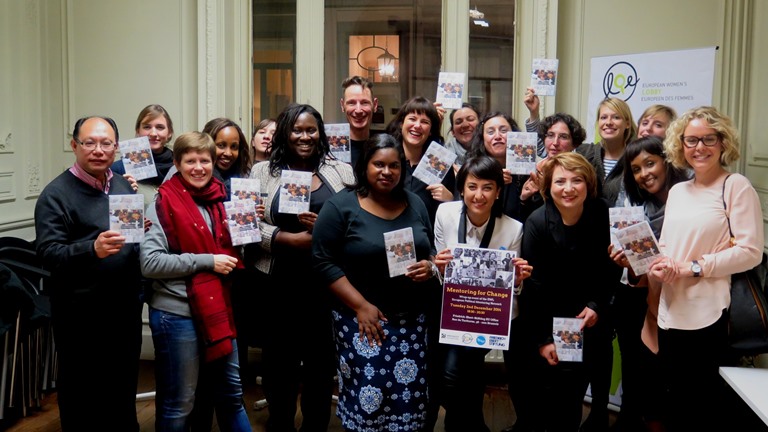[Brussels, 10 November 2011] At a public hearing today in the European Parliament, European women’s associations are expected to take a strong stand against any potential renegotiation of European legislation concerning family reunification, which they fear will be to the detriment of migrant women, and to call on the member states to improve access and integration measures.
‘Given the current political climate in the member states, we are deeply concerned that any reopening of this legislation might lead to even more restrictive qualification criteria’, said Cécile Gréboval, Secretary General of the European Women’s Lobby. ‘Such a development would not only be against the spirit of the original bill, which is meant to promote integration rather than to prevent migration, but furthermore risks discriminating against migrant women, who often have fewer financial resources and therefore, chances to qualify to bring their partners and children.’
The public hearing, entitled ‘Family Reunification Legislation in Europe: is it Discriminatory for Migrant Women?’, is co-organised by the European Women’s Lobby (EWL), the International Centre for Migration Policy Development (ICMPD) and the European Network of Migrant Women (ENoMW) ahead of the anticipated publication by the European Commission on 15 November of a new Green Paper on the Right to Family Reunification (Directive 2003/86/EC). The Green Paper is the first step of the review procedure for family reunification provisions in the EU.
Drawing on the expertise and experience of Members of the European Parliament, policy-makers, academics, NGOs and other key stakeholders, the hearing will consider the implications of current policies for the future integration perspectives of migrant women into society and the labour market.
While opposing renegotiation of current European legislation, women’s organisations are urging European and national policy-makers to use the opportunity of the upcoming evaluation to ensure respect for women’s rights and gender equality.
According to Nusha Yonkova from the European Network of Migrant Women, ‘This is a chance for governments to act to put an end to policies establishing dependency between family members. In particular, we demand autonomous residence status for migrant women experiencing domestic violence.’
Ms. Yonkova presented evidence from Ireland, which suggests that migrant women are inclined to endure domestic abuse longer than their native counterparts, as by leaving an abusive spouse they risk becoming undocumented, homeless and without means of support.
‘We cannot emphasise strongly enough the need for realistic, life-based and common sense reunification arrangements. These should not hinder but rather support migrant women in their efforts to ensure integration for their families’, concluded Ms. Yonkova.

